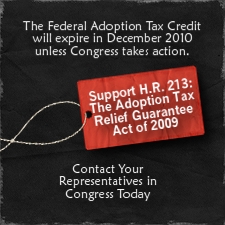I have a confession to make. I had every intention of attending a gathering in the park to celebrate the Chinese Moon Festival this past September. I'm generally an outgoing person, but, as I was parking my car, I gazed at, what appeared to be, a very social crowd of Asian families...and fear overcame me. I immediately thought, What if they don't accept me? Will I look stupid being the only white person in the group? So I kept driving, angry at my cowardliness, that I had given up so easily, and used the excuse that I'd feel more comfortable coming next year with my Chinese daughter. I guess the one positive outcome from the situation, that I hadn't anticipated, was that I had, in fact, stepped into the shoes of a person of color...as a minority. The fear of not being accepted was very real for me at that moment. I empathized with the feeling of awkwardness, being among a crowd where I didn't "fit in"...feelings that, no doubt, my daughter will have throughout her life. However, despite learning this lesson, I was still so disappointed in myself for failing to do what I had planned to do - to introduce myself to an ethnic community to which the path of adoption has brought me.
After reading these two posts today, my experience resurfaced (though I had hoped to just sweep under the rug and not share with anyone).
Jae Ran Kim at Harlow's Monkey wrote this in her post "Drive-by Culture":
"The advice I can give is that each child will be different and their needs will be different over time. But, the choice to be involved in the child’s community should never be dependent on the child. Well, I mean that there will be times that the child won’t want to attend culture camp, language lessons, or have tacos on Tuesday and egg rolls on Wednesday. But being part of the child’s community is more than those things, which amount only to cultural tourism. Being part of the community is dependent on the adults. The parents. It’s that the parents attend a Korean church or a Black church for themselves. Because they value it. It’s not about “dropping the kids off at the curb” and coming back to pick them up later. That suggests that culture and diversity is the kid’s job."
And Sue at My Life Postponed had this to say in her post, "Why We Go To Culture School":
"I don’t take my kids to culture school for the things they will learn. So far they have learned a few Hindi letters and a couple of facts about Gandhi that we could teach them at home, with help from google. But I am finding that if I participate in the classes (where appropriate) the learning curve for JL is much more rapid.
I take them there for the relationships. If I cannot model comfort with people of their own origin, then they will pick that up very fast and feel and reflect my own discomfort. I am not always comfortable but I have kept practicing comfort, as best I can, until it becomes more natural and it truly has. And once in awhile, in the midst of what feels like a whole lotta posing, an authentic connection just happens.
I want my kids to know Indian children who are adopted and Indian children whose families (by my daughter’s words) “got to keep them”. And I do want them to know cultural stuff but I also want them to know cultural expression varies according to family and region.
None of that comes without the risk-taking it requires of me–already awkward introvert–to actually establish and have relationships with people from their country of origin, and people who have descended from immigrants from their country.
Sometimes I have to be the first to say hello, and have to smile a few times before the ice gets broken and sometimes the ice remains regardless of my effort and I take the cue to step back. I am also learning that just because someone is not immediately smiling and opening their heart to me, that does not mean they are hostile. Maybe they are shy; maybe they don’t know what to make of our family; maybe there is a language barrier; maybe they have a headache; maybe they have mixed feelings about the environment or someone else nearby and I am taking a vibe–not meant for me–personally.
Community building is not easy for any of us. But we sure can make it easier for each other, if we keep trying. It requires vulnerability, and it requires persistence, and a lifetime commitment. Oh and a thick skin. It all starts with some basic manners, which can be difficult to remember when we are feeling plagued by all kinds of discomfort that systemic racism has taught us.
It’s a responsibility that, for our childrens’ sake, we transracially adoptive parents should not evade. If we want our children to know that we accept them for exactly who they are, a genuine desire to be with and respect people who share their ethnic background is an important aspect of showing–rather than saying–how we feel."
Sunday, November 25, 2007
Subscribe to:
Post Comments (Atom)









No comments:
Post a Comment